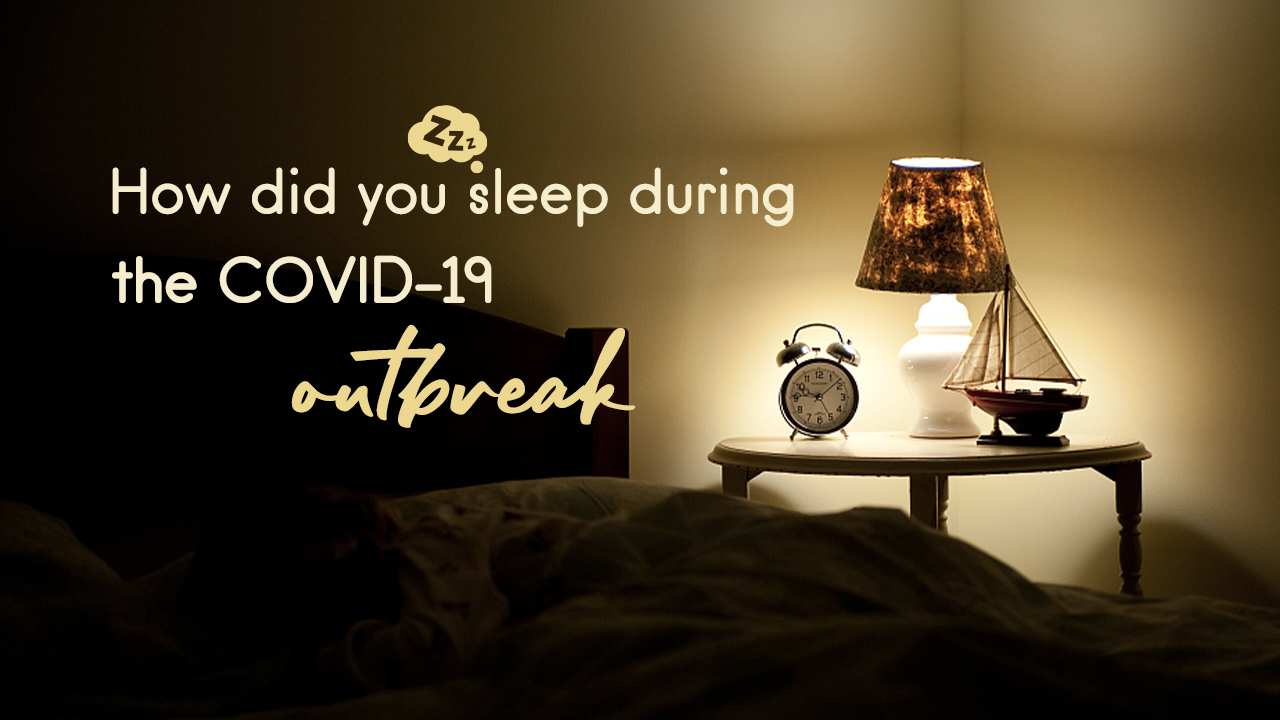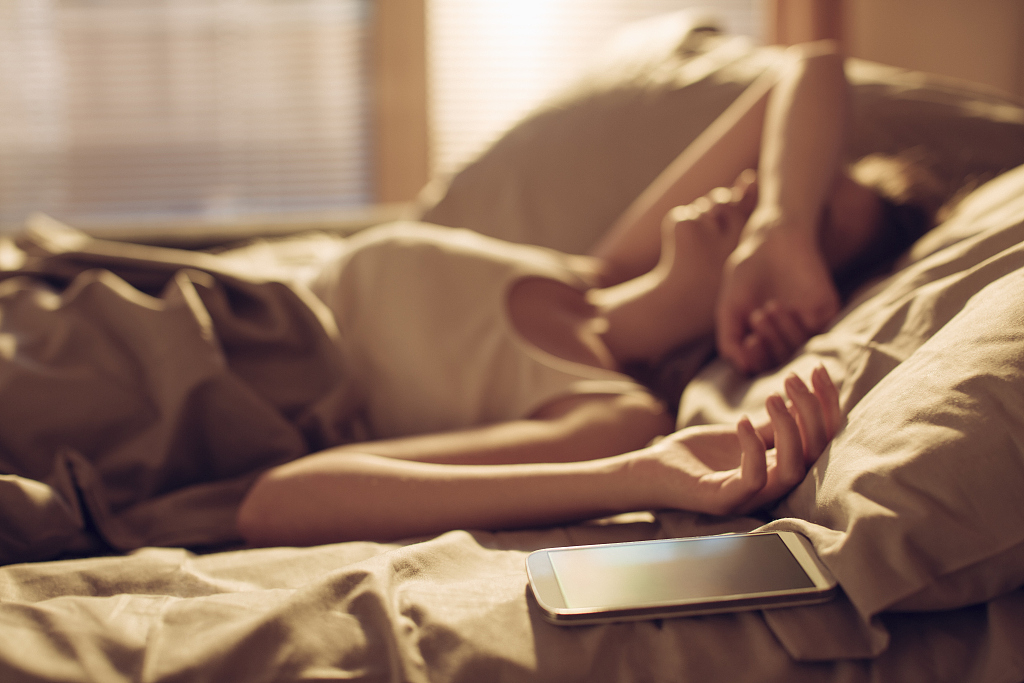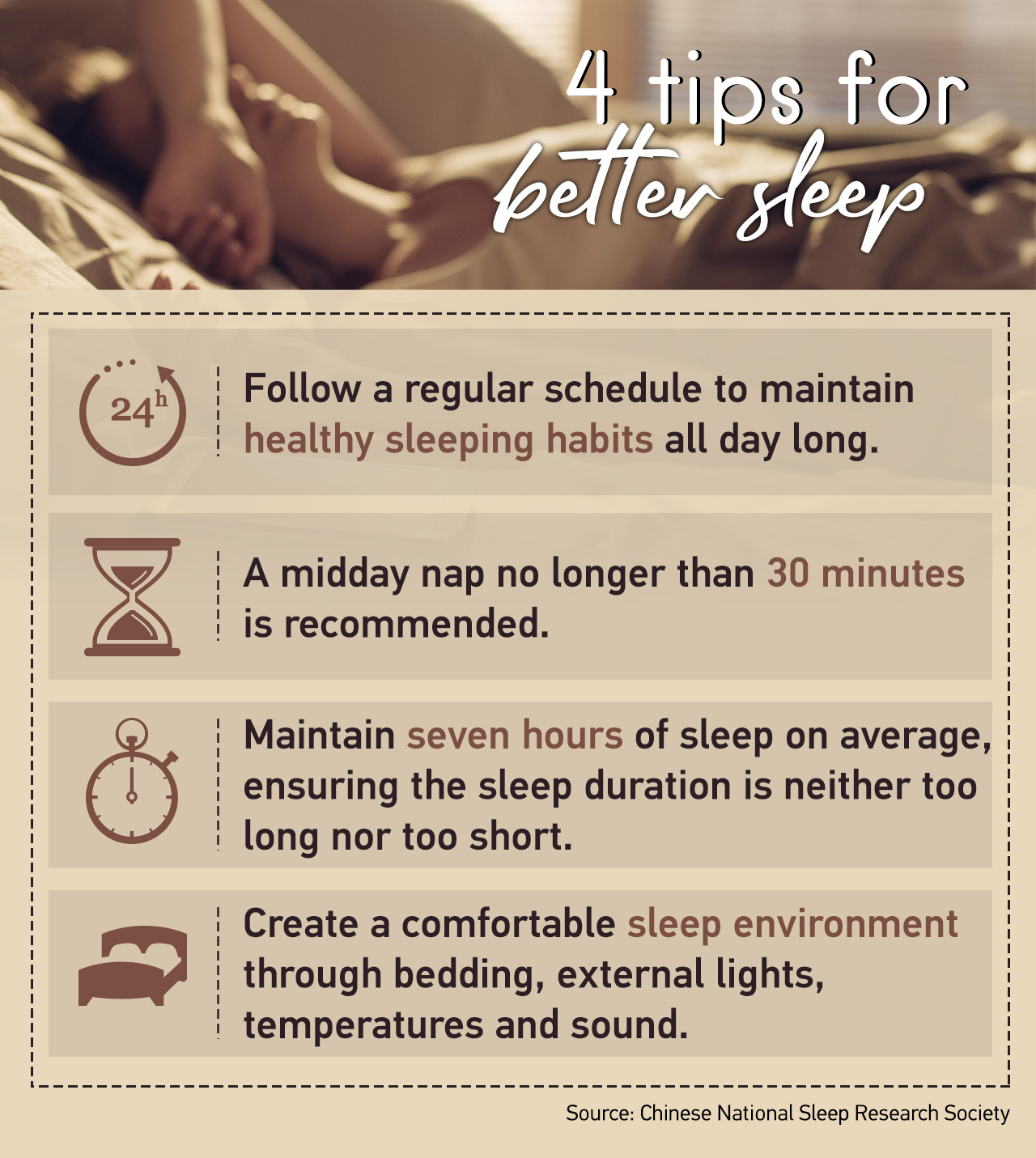Days after this year's World Sleep Day on March 13, a survey on the sleep quality among Chinese people during the COVID-19 outbreak was released on March 14, 2020.
Conducted by the Chinese Sleep Research Society, the survey concluded the results of questionnaires filled up by 2,004 people aged between 19 and 80 on their sleep behaviors starting from January 1 to February 29 this year. Those interviewed come from 31 provinces nationwide, of which 56 percent were male and 44 percent of respondents were female.

According to the survey, about 23 percent of the respondents go to bed after midnight during self-isolation at home, while prior to the epidemic, only 10 percent were night owls.
Among those accustomed to long vigils, more than 60 percent played with mobile phones after suffering from insomnia. Others watched TV series, movies or read.
Meanwhile, of all provinces, east China's Jiangxi Province had the largest proportion of night owls, where more than 90 percent respondents are said to hit the sack between 11:00 p.m. and 4:00 a.m. Northwest China's Shaanxi Province and southwest China's Sichuan Province saw 89 and 88 percent respectively, according to the survey.

Over 60 percent of the respondents played with their mobile phones after failing to fall asleep. /VCG
Over 60 percent of the respondents played with their mobile phones after failing to fall asleep. /VCG
Sleeping in tended to correspond with staying up late, and the results indicated that nearly 30 percent of the respondents were apt to sleep in, waking up between 9:00 a.m. and 12:00 p.m., compared to their timetable prior to the outbreak of the novel coronavirus.
At the provincial level, among the late risers (people who woke up between 11:00 a.m. and 12:00 p.m.), people in east China's Zhejiang Province dominated the largest portion, followed by Jiangxi Province and Shaanxi Province.
The survey also analyzed people's sleep duration before and after the epidemic outbreak. With more residents implementing self-quarantine at home, the number of people with more than 8 hours of sleep per day also rose by 20 percent compared to that before the outbreak.
It was indicated that people in central China's Hubei Province, once the epicenter of the disease, boasted the longest sleep duration, about nine hours per day on average, followed by Beijing, Zhejiang Province and Henan Province.

The survey revealed that nearly 30 percent of the respondents were apt to sleep in during the COVID-19 outbreak. /VCG
The survey revealed that nearly 30 percent of the respondents were apt to sleep in during the COVID-19 outbreak. /VCG
Despite the longer sleep duration since the COVID-19 outbreak, however, the survey revealed a deteriorating sleep quality among the respondents, witnessing an increase of 10 percent of the number of bad sleepers. Among them, more than 60 percent of the interviewees over 56 years old had reportedly the worst sleep of all. On average, people tended to fall asleep 30 minutes later than before, as was suggested by the survey.
More sleep hours don't necessarily promise good sleep quality, according to Zhang Bin, the standing director of the Chinese Sleep Research Society and psychiatrist in Nanfang Hospital, the first affiliated hospital of the Southern Medical University. Zhang also suggested that a disrupted bedtime schedule may even disorder one's circadian rhythm and eventually damage one's health.

German researchers discover how sleep can fight infection by enhancing the ability of T cells to attach to their targets. /Rockefeller University Press
German researchers discover how sleep can fight infection by enhancing the ability of T cells to attach to their targets. /Rockefeller University Press
Moreover, sleep has also been proved to be the best way to fight infection as it helps to improve the potential ability of some of the body's immune cells to attach the targets, according to a study published by researchers in Germany in the Journal of Experimental Medicine, February 12, 2019. Conclusion was also made by Doctor Jan Born at the University of Luebeck in Germany, who found that people with less than six hours of sleep per night have 50 percent less resistance to viral infections compared to those with eight hours of sleep a day.
While many may have thrown themselves into turmoil over the COVID-19 pandemic, failing to sleep, apparently, couldn't help to make things better. So before wearing yourself out for a night's sleep like a log, here is a list of tips for you:

Chinese Sleep Research Society has given some tips for better sleep. /CGTN
Chinese Sleep Research Society has given some tips for better sleep. /CGTN
(Cover photo by Yin Yating)